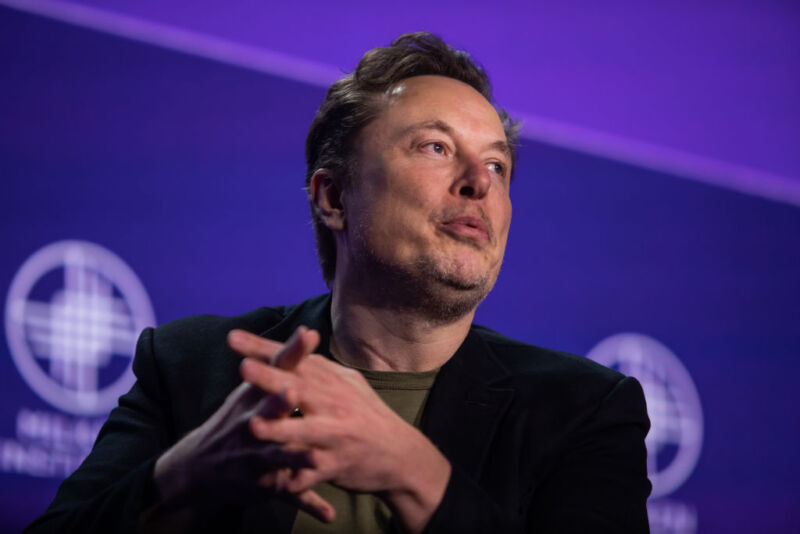
After months of loudly protesting a subpoena, Elon Musk has once again agreed to testify in the US Securities and Exchange Commission’s investigation into his acquisition of Twitter (now called X).
Musk tried to avoid testifying by arguing that the SEC had deposed him twice before, telling a US district court in California that the most recent subpoena was “the latest in a long string of SEC abuses of its investigative authority.”
But the court did not agree that Musk testifying three times in the SEC probe was either “abuse” or “overly burdensome.” Especially since the SEC has said it’s seeking a follow-up deposition after receiving “thousands of new documents” from Musk and third parties over the past year since his last depositions. And according to an order requiring Musk and the SEC to agree on a deposition date from US district judge Jacqueline Scott Corley, “Musk’s lament does not come close to meeting his burden of proving ‘the subpoena was issued in bad faith or for an improper purpose.'”
“Under Musk’s theory of reasonableness, the SEC must wait to depose a percipient witness until it has first gathered all relevant documents,” Corley wrote in the order. “But the law does not support that theory. Nor does common sense. In an investigation, the initial depositions can help an agency identify what documents are relevant and need to be requested in the first place.”
Corley’s court filing today shows that Musk didn’t even win his fight to be deposed remotely. He has instead agreed to sit for no more than five hours in person, which the SEC argued “will more easily allow for assessment of Musk’s demeanor and be more efficient as it avoids delays caused by technology.” (Last month, Musk gave a remote deposition where the Internet cut in and out, and Musk repeatedly dropped off the call.)
Musk’s deposition will be scheduled by mid-July. He is expected to testify on his Twitter stock purchases prior to his purchase of the platform, as well as his other investments surrounding the acquisition.
The SEC has been probing Musk’s Twitter stock purchases to determine if he violated a securities law that requires disclosures within 10 days from anyone who buys more than a 5 percent stake in a company. Musk missed that deadline by 11 days, as he amassed close to a 10 percent stake, and a proposed class action lawsuit from Twitter shareholders has suggested that he intentionally missed the deadline to keep Twitter stock prices artificially low while preparing for his Twitter purchase.
In an amended complaint filed this week, an Oklahoma firefighters pension fund—which sold more than 14,000 Twitter shares while Musk went on his buying spree—laid out Musk’s alleged scheme. The firefighters claim that the “goal” of Musk’s strategy was to purchase Twitter “cost effectively” and that this scheme was carried out by an unnamed Morgan Stanley banker who was motivated “to acquire billions of dollars of Twitter securities without tipping off the market” to curry favor with Musk.
As a seeming result, the firefighters’ complaint alleged that Morgan Stanley “pocketed over $1,460,000 in commissions just for executing” the “secret Twitter stock acquisition scheme.” And Morgan Stanley’s work seemingly pleased Musk so much that he went back for financial advising on the Twitter deal, the complaint alleged, paying Morgan Stanley an “estimated $42 million in fees.”
Messages from the banker show he was determined to keep the trading “absofuckinglutely quiet” to avoid the prospect that “anyone sniff anything out.”
Because of this secrecy, Twitter “investors suffered enormous damages” when Musk “belatedly disclosed his Twitter interests,” and “the price of Twitter’s stock predictably skyrocketed,” the complaint said.
“Ultimately, Musk went from owning zero shares of Twitter stock as of January 28, 2022 to spending over $2.6 billion to secretly acquire over 70 million shares” on April 4, 2022, the complaint said.




















+ There are no comments
Add yours